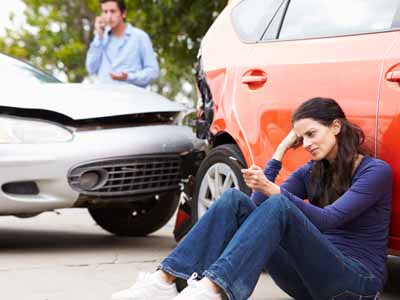Comprehensive Insurance Coverage: What to Ensure Your Policy Includes
Getting your insurance policy right is important. You want to make sure that your home, the car you drive, your health and all those other concerns that, let’s face it, are hard to imagine what life would look like without are covered. That means understanding what your policy should consist of. The following article looks at how to make sure your insurance policy completely covers you when you need it most. The following article is written by Hayden Grove from Wikipedia.
Looking back, it is hard to believe that I ever lived in my first apartment right out of university, and that I lived in that apartment for as long as I did. Back in my early twenties, I had absolutely no concept of the importance of having protection – financial, chronic bodily (like health), or physical. During that time, I rented a basement apartment with a full kitchen at the back of a three-story, single-family home.
Sufficient Coverage Limits: Check that the coverage limits under your policy are sufficient to adequ to rebuild your home up to the limit if it is destroyed, and for auto, the liability limits should properly protect you against losses and injuries to others you may cause in an accident.
Special coverage for disasters: Find out if your policy has special coverage for disasters such as hurricanes, earthquakes and floods, or whether you need to buy additional coverage – or even separate policies – especially if your area is vulnerable to such occurrences.
Personal Property Protection: If you take out a policy for homeowners coverage or renters coverage, be sure it covers your personal property (furniture, electronic equipment, your clothes etc). Take a look at the limits and consider adding coverage for very expensive items that you own, such as jewellery or art.
Liability Coverage: You are liable for the bodily injury or property damage of others if you are personally judged legally responsible for their injury or property damage. Check to see that your homeowners and auto policies provide you with at least an adequate amount of liability coverage for your family’s amount of assets. You don’t want lawsuits against your employment earnings arising from uncovered injuries from your child’s trampoline.
Medical Payments Coverage: Medical payments coverage in auto insurance helps cover medical expenses for the accident victims in your vehicle when you are involved in an accident. If you have it in your policy, make sure you make use of it. Medical cost after a traumatic event is one of the most urgent early needs. You need coverage that will cater to medical costs to help attend to it immediately.
Coverage for Un/Underinsured Motorists: When it comes to auto insurance, uninsured and underinsured motorist coverage comes in handy if you encounter a driver who doesn’t have enough insurance. So make sure you have that coverage.
Coverage for Specific Risks: Based on your circumstances, additional ‘specific’ coverage could fill in the blanks where regular homeowner’s insurance leaves you vulnerable. An example of this would be adding more coverage for a business you may run from home.
It’s important to know what should be included in your insurance policy so that you can have meaningful and adequate coverage with a potentially robust financial safety net.
A good policy will include provisions for high coverage limits, broad protection from natural disasters, personal property coverage, adequate liability and medical payments protection, lawsuits from uninsured or underinsured motorists driving too little insurance, plus whatever special coverage you might need for more unusual exposures to damage or loss.
Have a clear idea of how much protection you might need and make sure it’s there in your policy. Periodically review your policy to see if circumstances have changed that would require you to consider adding or dropping coverage, since it’s likely the levels of protection you require will change over time.














